Anticipation is Joy in Advance
by Patty Freedman
Do you spend more time focused on the past, present or future? I am a worrier. So I think a lot about what’s coming next. I prepare myself for unexpected events and I like to keep myself motivated by upcoming things in my calendar. That’s why I was excited to dive into this topic to unpack Anticipation and how it can support or hold us back.
Anticipation is one of the eight basic emotions in the Plutchik Wheel of Emotions. (Get your own Plutchik sticker for your journal). It tells us that change is happening and invites us to pay attention. It helps us look ahead and prepare. But here’s the tricky part– anticipation (like all emotions) lives on a spectrum of intensity. We can be curious and open about that future but we also can risk veering into fear that drains our energy. Let’s look at the science and practice of anticipation.

The Science of Anticipation
When you anticipate something positive, your brain releases dopamine — the neurotransmitter of motivation and learning. Importantly, dopamine isn’t about the reward itself; it’s about the pursuit. Your brain gets energized in the waiting, imagining, and preparing.
Psychologists call this prospection: the mind’s ability to project itself into the future. Unlike worry, which projects fear, positive anticipation projects hope. And that difference changes your body and brain:
- Stress drops: Cortisol levels lower, easing the nervous system.
- Focus sharpens: Your brain pays more attention to what it expects and prepares for.
- Mood lifts: You feel more resilient, even before the moment arrives.
In other words, anticipation is a way of practicing joy in advance.
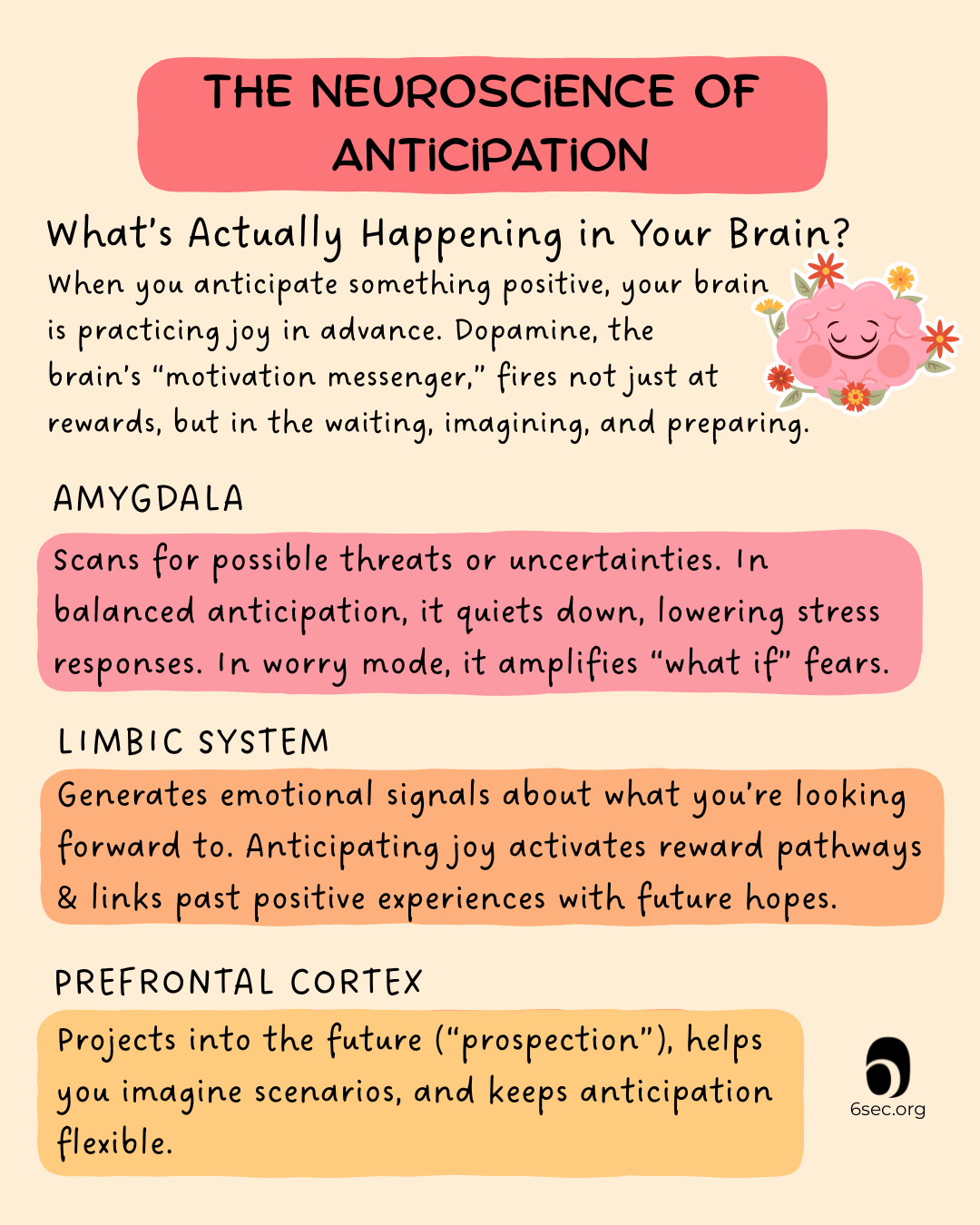
Why Anticipation Feeds Resilience
Resilience isn’t the absence of stress—it’s the ability to return to balance despite it. Anticipation provides resilience by giving the nervous system a respite in what I like to call “a holiday of hope.” When life feels heavy, having something to look forward to—even something small—reminds your body that the future can hold delight, not just threat. Check out this article for more on developing resilience with EQ.
Studies show that people who regularly anticipate small joys report lower rates of depression and higher levels of motivation. One (funny) study shows that simply anticipating laughter—even before it happens—can increase levels of endorphins and human growth hormone, while reducing stress hormones. Anticipating positive events strengthens wellbeing. In fact, people who regularly practice anticipation show nervous systems that move more easily out of survival mode and into growth
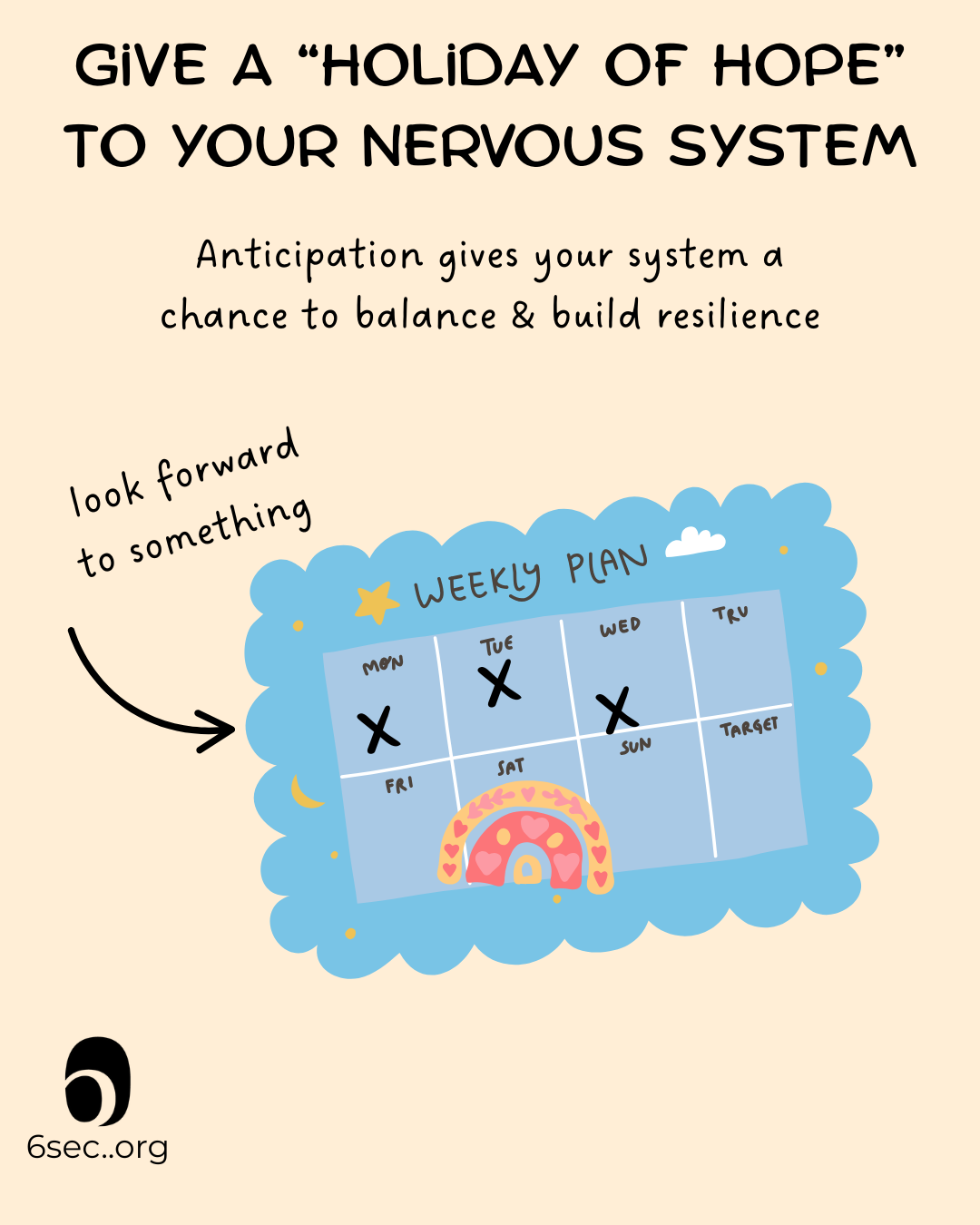
Two Anticipation Mindsets: Worry vs Hope
Anticipation isn’t just about the future — it’s about the lens you bring to it.
- Worry-driven anticipation keeps the brain’s alarm system switched on. The amygdala scans for danger, spinning “what if” stories and locking us into rigid expectations. This kind of anticipation drains energy, fuels anxiety, and makes the future feel heavier than the present.
- Hope-driven anticipation activates motivation circuits in the brain, releasing dopamine and energizing us for what’s ahead. It holds the future lightly, with curiosity and openness, restoring resilience even before the moment arrives.
For more on shifting your mindset with emotional intelligence check out this and this article.
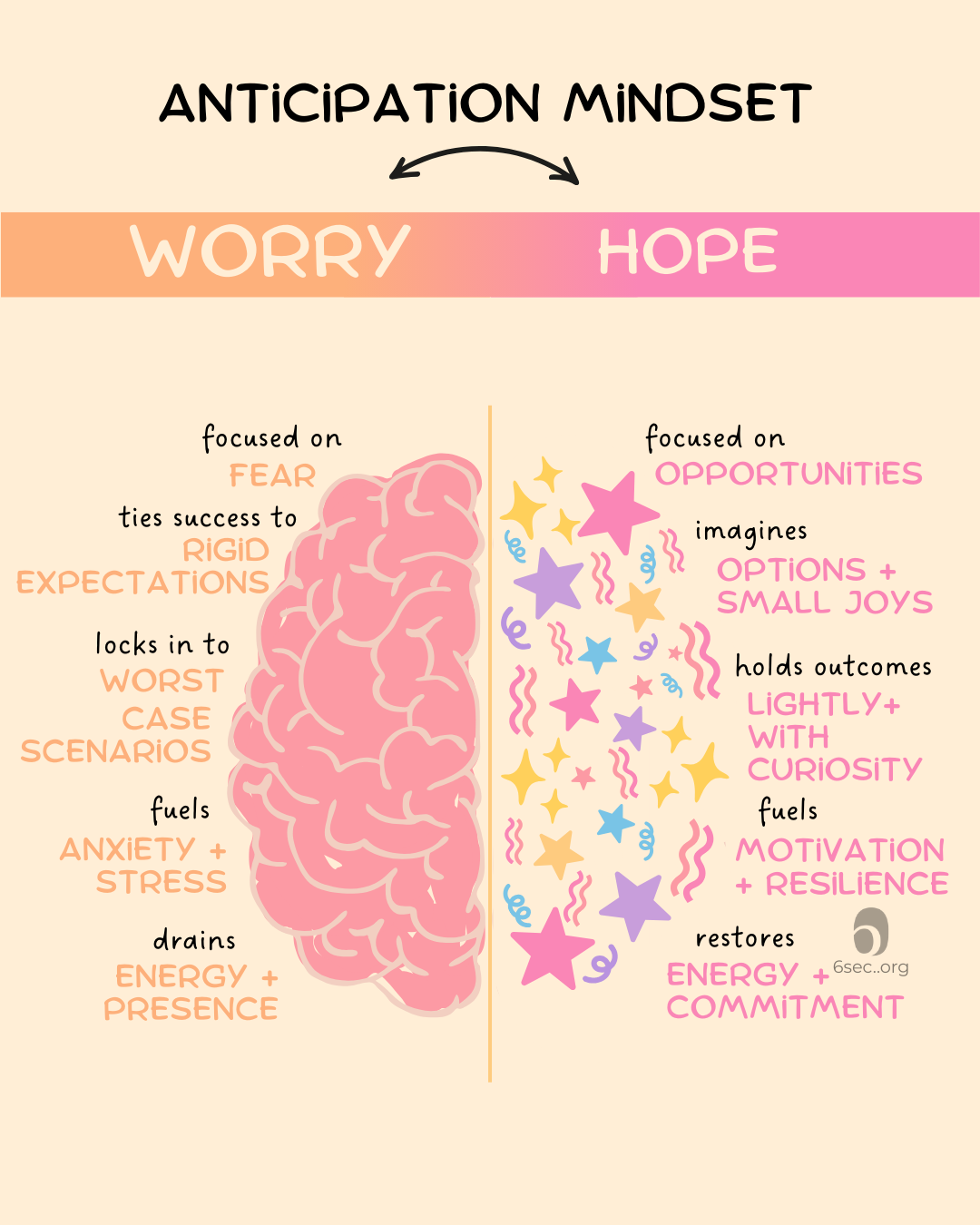
The Shadow Side of Anticipation — and How to Find Balance
Anticipation is powerful, but like many emotional skills, it has a shadow side. For people prone to anxiety, anticipation can tip into overdrive: endless “what if” loops, rehearsing worst-case scenarios, or clinging to expectations so tightly that disappointment is inevitable.
Neuroscience shows why this happens. When worry dominates anticipation, the amygdala (our brain’s alarm system) stays highly activated, while regions that regulate perspective, like the prefrontal cortex, become less engaged. Instead of feeling buoyed by the future, we feel trapped by it.
The key is balance. Anticipation should feel light, not heavy—like holding a butterfly in your finger. You are excited by the joy of looking forward, but you don’t crush it by insisting on a controlled outcome.
🧠 EQ Tip: Practice “hope with flexibility.” Each time you anticipate something good, add a phrase like:
- “I’m looking forward to this, and I’ll let it be what it is.”
- “This moment might surprise me in ways I can’t see yet.”
- “The answer is coming soon- and then I’ll see what unfolds next.”
- “It feels good just to have this on my calendar– I don’t need it to be perfect.”
- “I’m waiting with curiosity. I wonder what will happen?”
This balance teaches the nervous system both hope and acceptance—two essential ingredients of resilience.
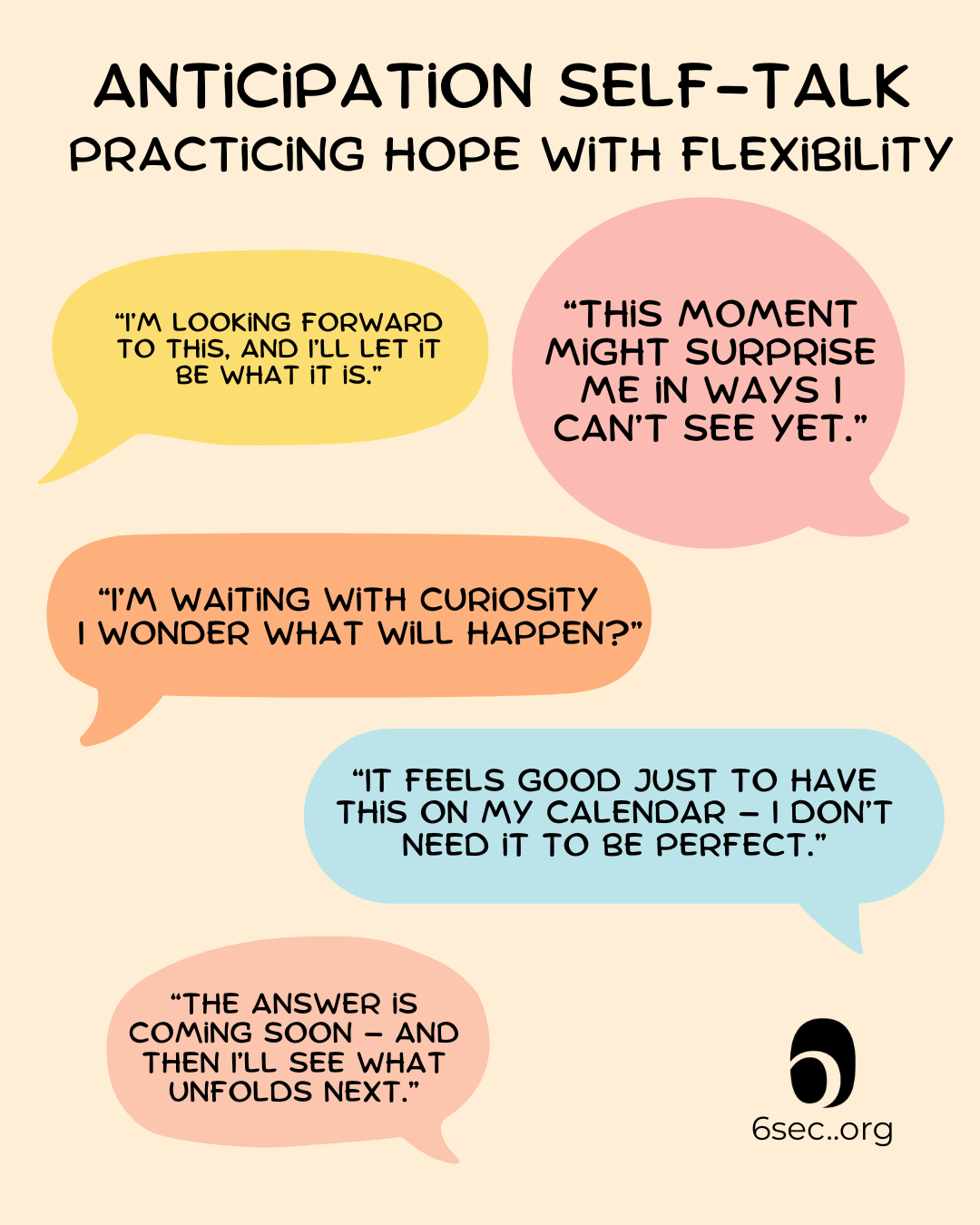
Build Your Own Anticipation Practice
We don’t have to wait for big events to feel the benefits of anticipation. Research shows that looking forward to even small joys—a meal, a conversation, a moment of rest—can boost resilience and wellbeing. The trick is to turn this into a habit.
That’s why we created a simple one-week anticipation ritual you can try. It gives your nervous system “practice runs” of joy in advance, helping you balance stress with hope and presence.
📥 Fill out the form below and download your 7-Day Anticipation Practice Worksheet!
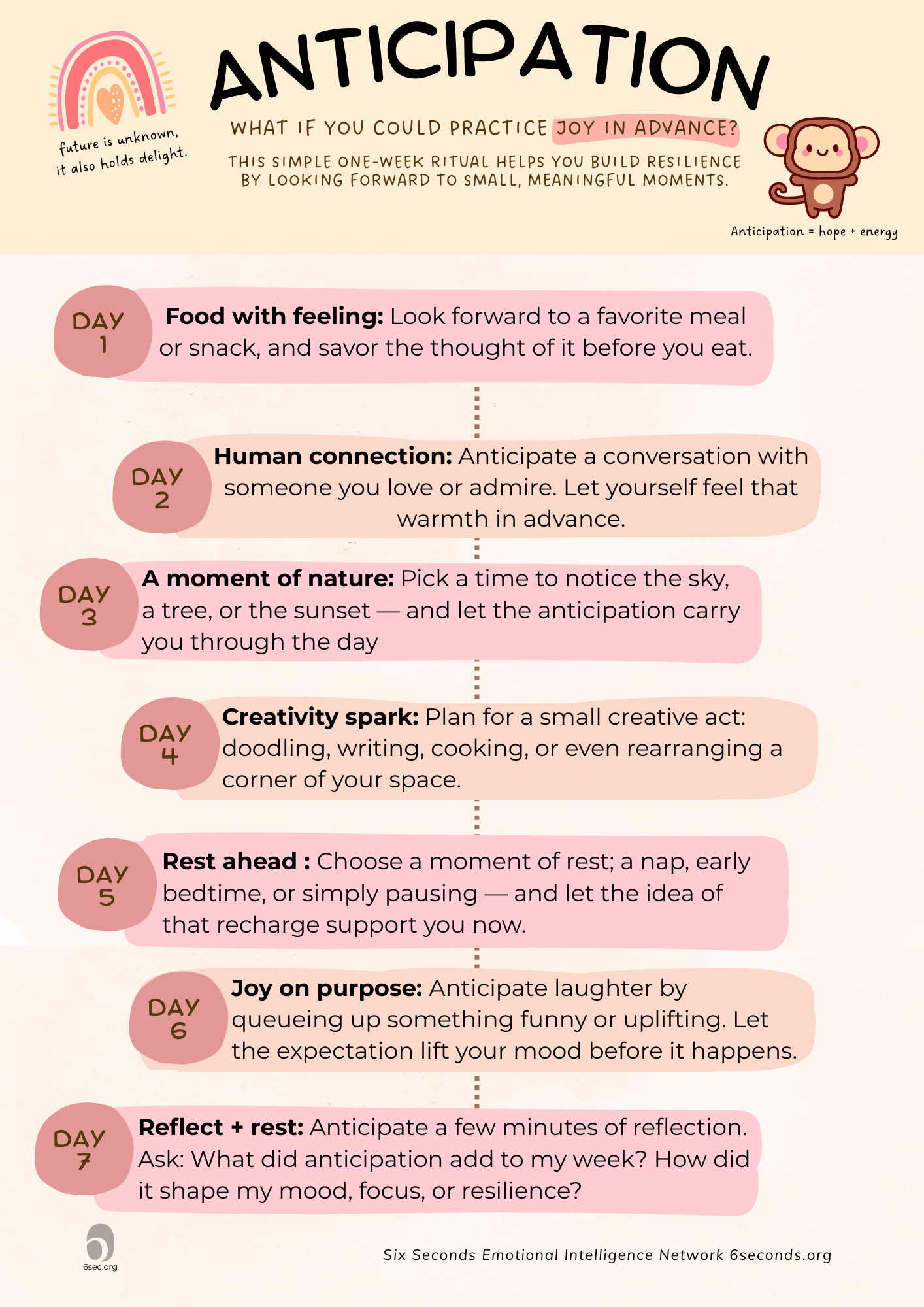
Holding the Future Lightly
Anticipation reminds us that the future is never guaranteed — but it’s also never empty. It can hold uncertainty, but it can also hold delight.
When we balance hope with flexibility, anticipation becomes a daily practice of resilience. It teaches the nervous system that we can meet uncertainty with curiosity, and that joy doesn’t only live in outcomes — it begins in looking forward.
So this week, let yourself anticipate something, big or small. Notice how it feels in your body to savor joy in advance. The future is unknown. And that’s exactly why it can surprise us with moments of delight.
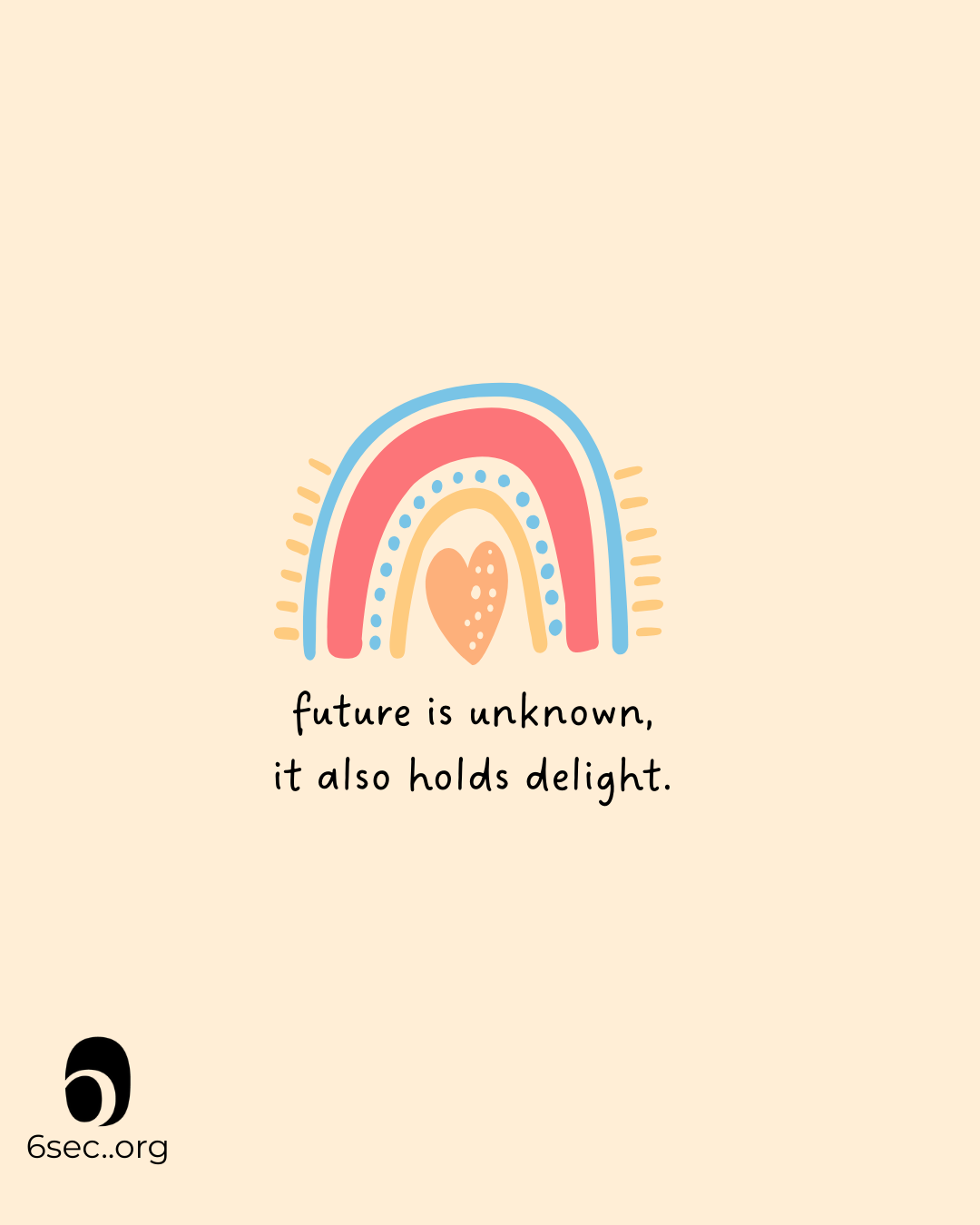
For more articles, I recommend:
- Is Your Motivation Hiding? Shine a Light on It - February 3, 2026
- Six Seconds 2025 Impact Report: Global reach, measurable outcomes anda growing movement for emotional intelligence - January 2, 2026
- The Holidays Can Be Something We Make, Not Something We Survive - December 7, 2025
